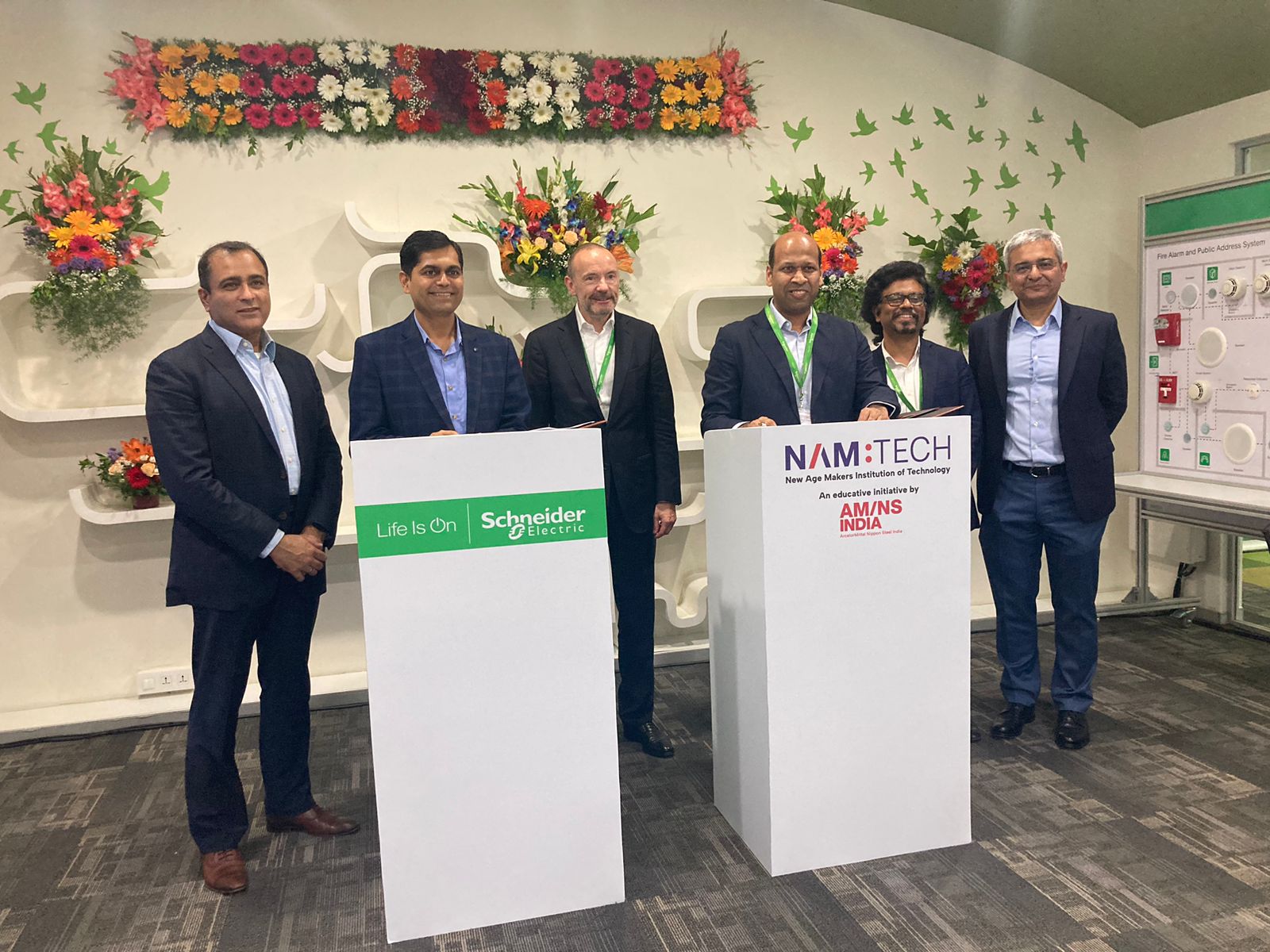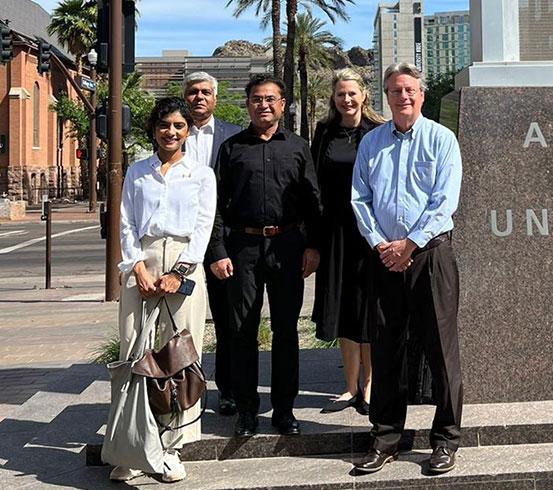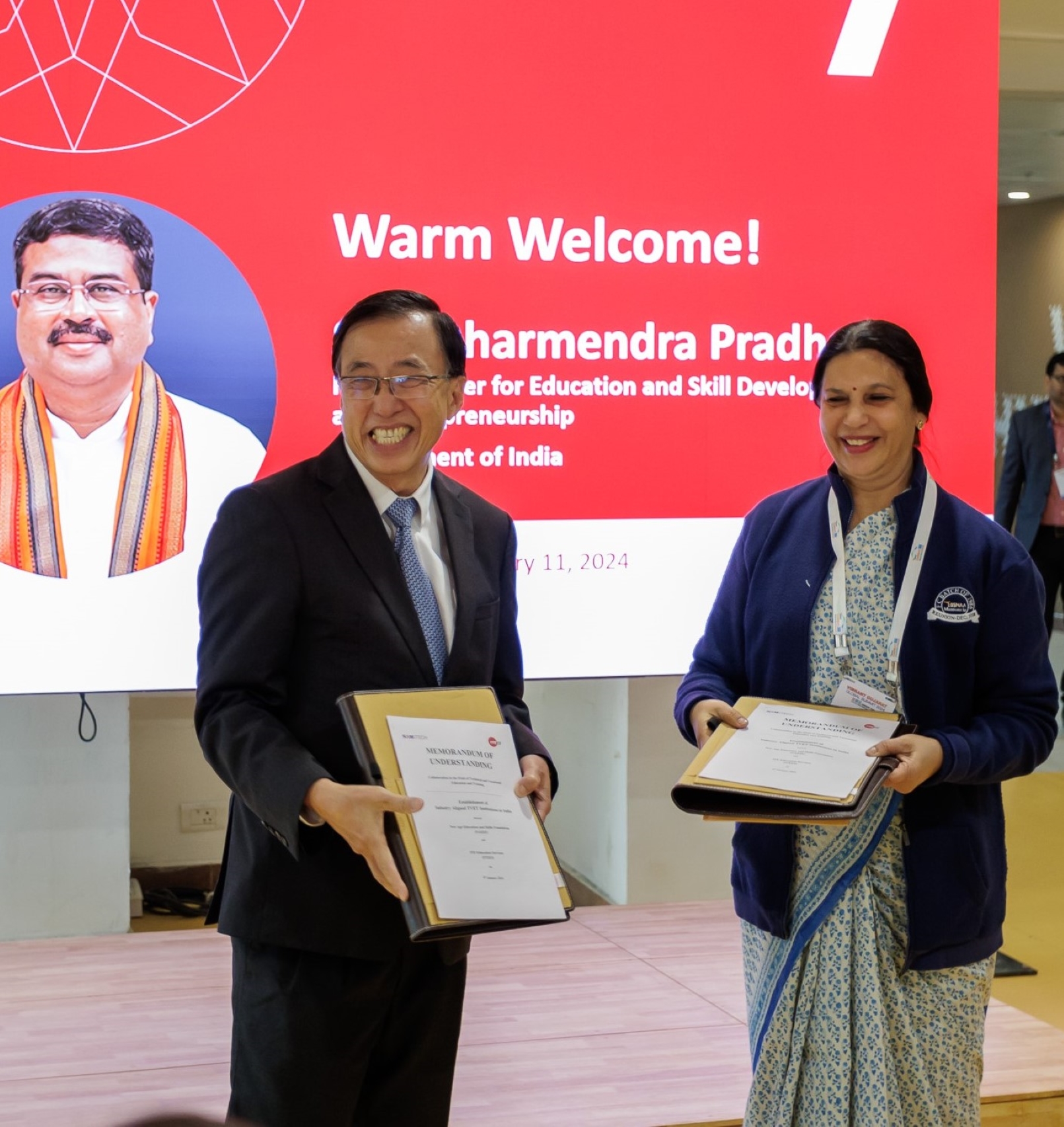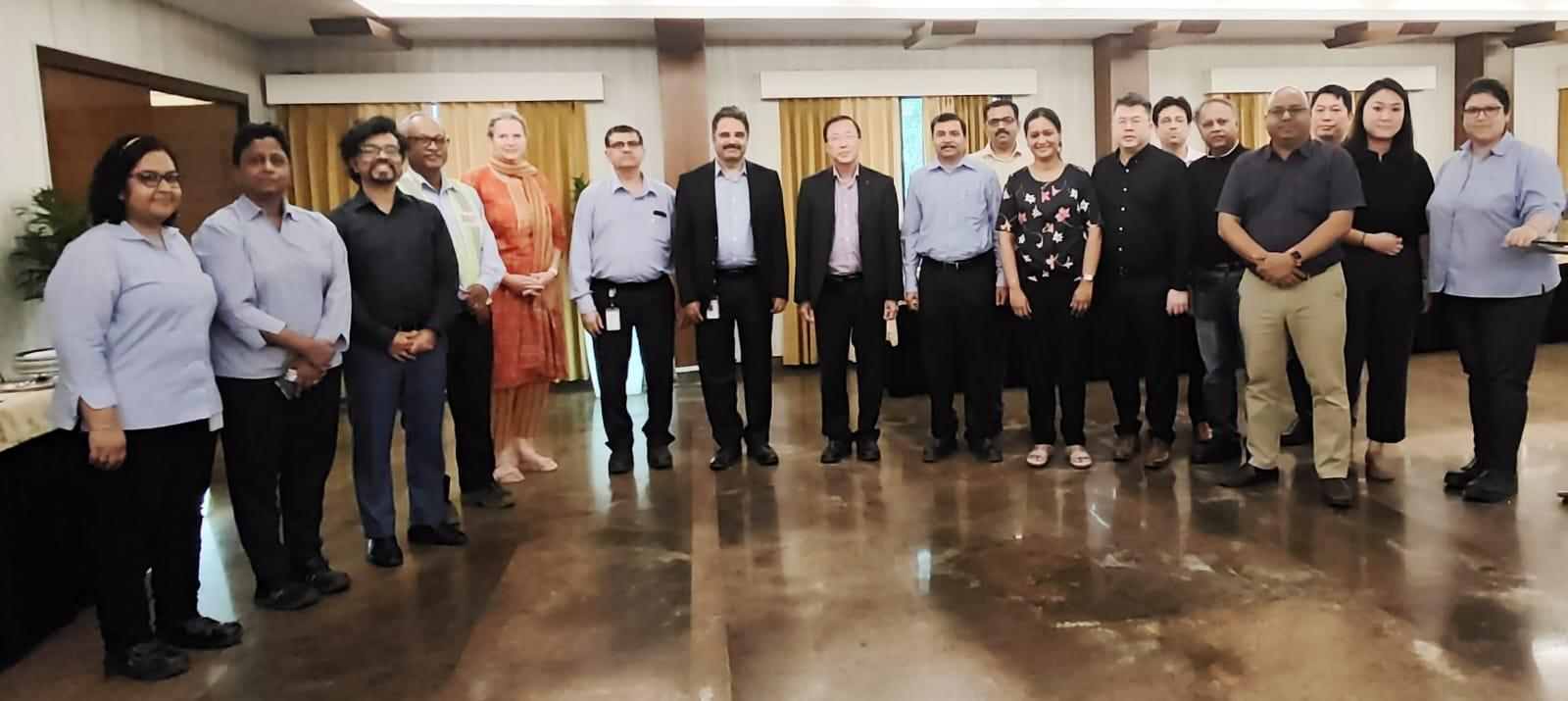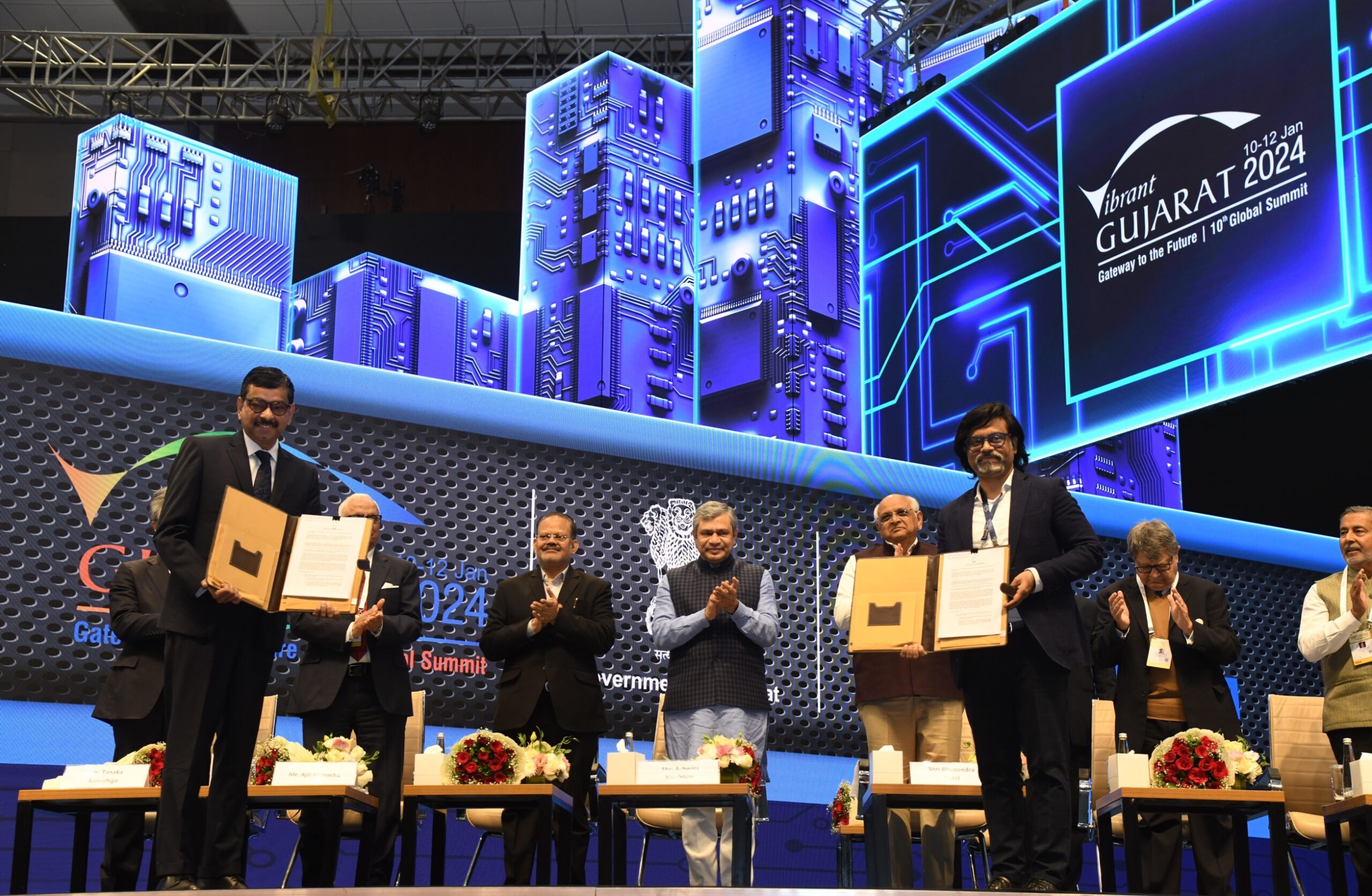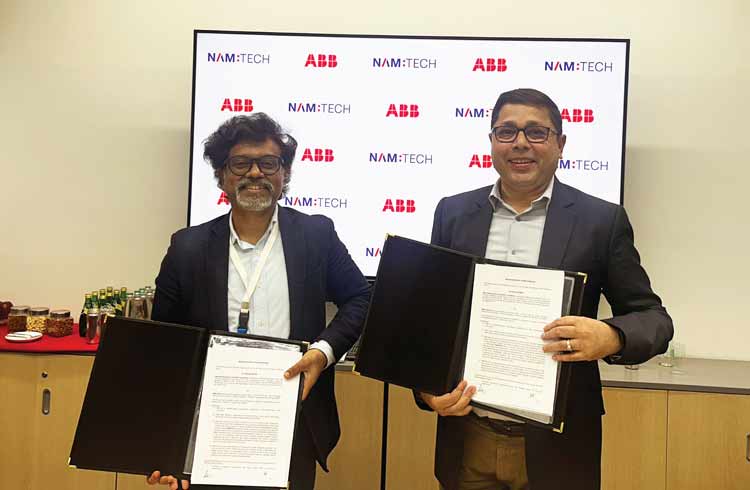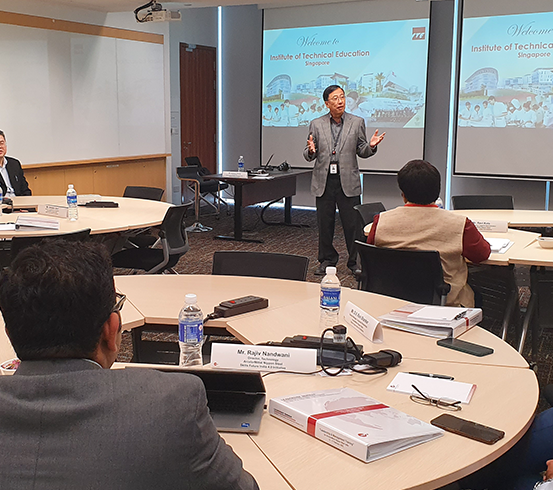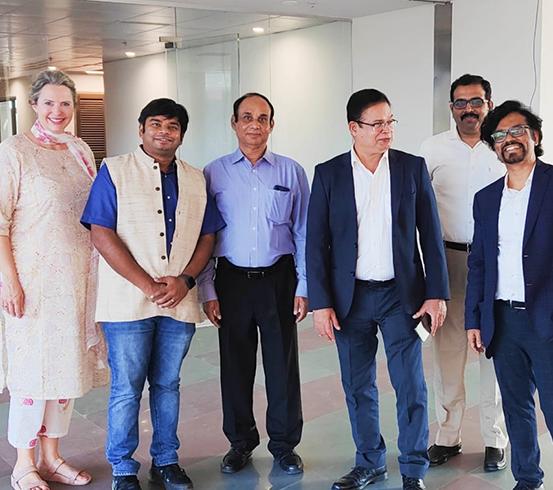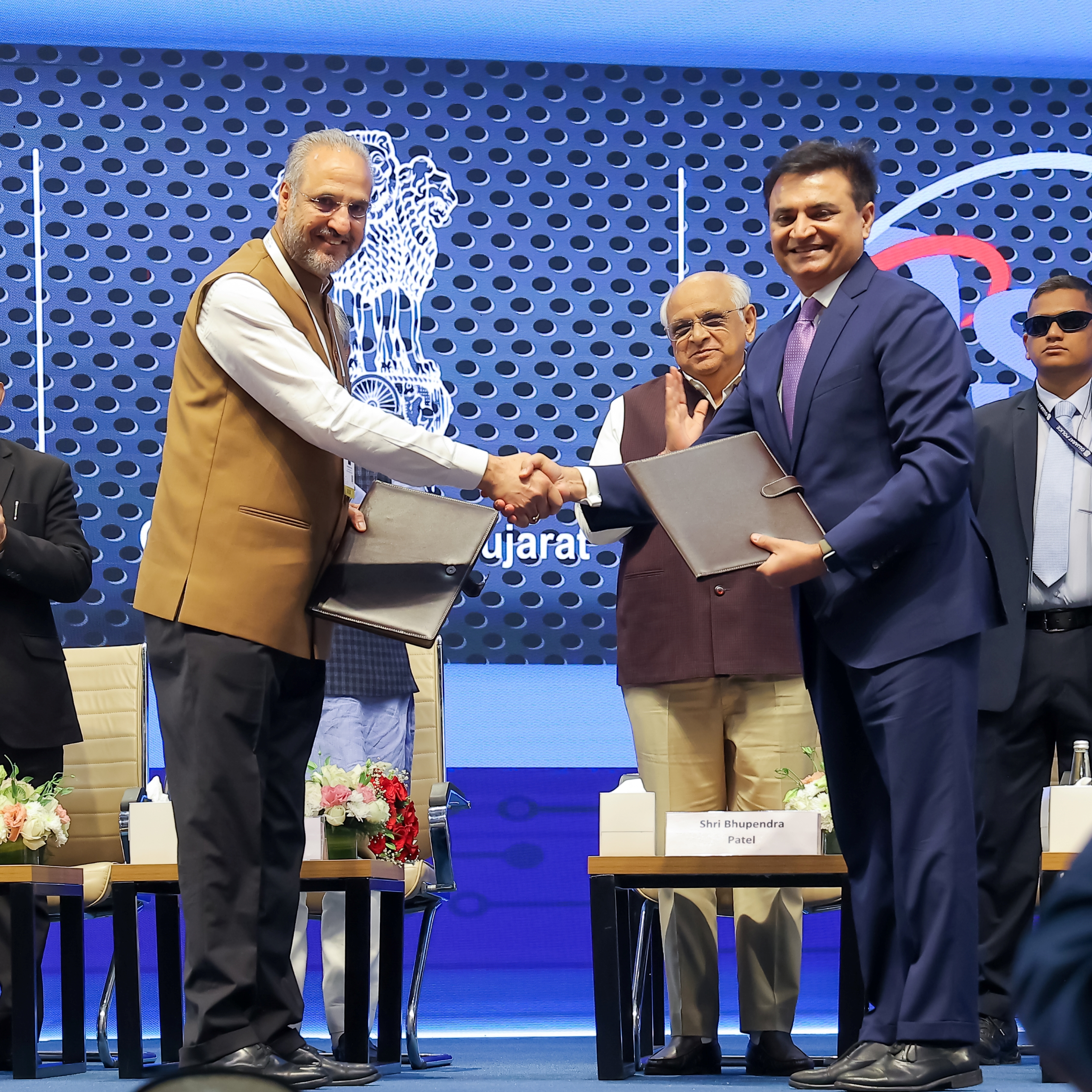The International Professional Master’s Program (iPMP) is a career-oriented, industry-aligned program for grooming engineers to run future factories and bridge the skill gap for smart manufacturing in Industry 4.0. It is an education initiative of ArcelorMittal Nippon Steel India (AM/NS) to accelerate India towards ‘Vikshit Bharat’ in 2047, the centennial year of our Independence.
This 1yraccelerated program aims to upskill existing engineers for new job roles and prepare them for tech transformation in their existing job profiles. New technologies such as AI, ML, Cyber Physical System (CPS) Smart Factory, IIoT, Industrial and Collaborative Robots, Digital Twin and Cloud Computing will generate new career opportunities with a significant disruption in the traditional manufacturing process.
Regarding the need to create new jobs and upskill the workforce, Mr. Sandip Patel (Managing Director, IBM India/South Asia) believes “AI and new-age technologies will create more career options than they destroy.” He also stated, “One of the things which we have been very articulate about and keep harping on is that reskilling will play a vital role.”
A recent IBM survey states, “Around 46% of the companies in India are currently training or reskilling employees to work together with automation and AI. Around 50% of employees are excited about working with automation and AI tools.”
There is an urgent need for the academia and tech industry to work with governments globally to shape the future pipeline of talent for AI-related jobs.
According to Minister of State for IT and Skill Development Rajeev Chandrasekhar; “Technological talent, not chip-driven computer power, is the key to India’s progress in Industry 4.0 and beyond.”
Heeding the need for smart manufacturing and realising India’s vision of a developed economy, NAMTECH began the iPMP Smart Manufacturing program to prepare a skilled workforce for Industry 4.0 and beyond. According to a Business Standard article, “the manufacturing sector will generate around 100 million new jobs and contribute 25% of the GDP by 2047. India must reduce unemployment to 7.1% annually. Otherwise, this demographic dividend could become a societal challenge,”
Therefore, we have opportunities as well as challenges. Courses like iPMP Smart Manufacturing at NAMTECH allow you to excel at current job roles and new career avenues manufactured by AI and other new-age technologies.
Career Prospects in Industry 4.0 and Beyond After the iPMP Program
This career accelerator program equips you with essential technological skills and prepares you for new-age job roles. Here are the top five job roles we will experience in Industry 4.0 and iPMP in Smart Manufacturing to prepare you for the same.
- Digital Twin Engineer
A digital twin engineer develops a digital representation of the dynamics of how an IoT-connected element and the physical products interact and operate. In simpler words, with digital twin solutions, you can digitally see inside a system, physical products or structure. It helps optimise design, assess performance, predict maintenance, and enhance the overall experience.
Job Responsibilities
- Creating digital twins to assess product/service performance through diverse conditions
- Using 3D software and simulations
- Optimising product/service performance through using machine learning, analysing real-time applications, and performance data
Skills Required
Simulations, analytics, systems engineering, research and development, and software development
- Smart Factory Manager
As a Smart Factory Manager, your core goal is to recognise data patterns, predict quality issues, and direct actions based on insights. Graduates in smart manufacturing programs also utilise predictive maintenance analytics to identify problems before happening. It also helps prevent future occurrences of such events.
Job Responsibilities
- Enabling self-optimisation through identifying and supporting the induction of advanced tech in a smart factory setting
- Developing a diverse range of automated manufacturing capabilities such as 3D printing, robot cutting, and more
- Managing the installation, operations, and maintenance of different levels in future factories
- Following cybersecurity protocols and ensuring implementation across the manufacturing process
Skills Required
Applied technology, automation, device connectedness, operational excellence, innovation and deep learning, digital prototyping and client management
- Robot Teaming Coordinator
The auto industry is the largest user of robots on their factory floor, with around 28% of all robots installed, and it will rise further in Industry 4.0. According to the International Federation of Robotics (IFR), about 3.5 million robots are operational worldwide as of February 2023. The report also stated that the total value of installed robots reached $15.7 billion in 2023.
Techopedia stated that ‘Ameca’ is the most advanced humanoid in the world as of 2022. It can mimic motion and facial expressions. Extensive use of robotics and automation created the Robot Teaming Coordinator job role.
Job Responsibilities
- Evaluating and observing robot performance and sharing feedback with programmers
- Recognising and recommending areas of improvement
- Training humans to operate robots and work in collaboration
- Ensuring adherence to key performance indicators
Skills Required
Proficient in robotic behavioural analysis, ability to enable human-robot collaboration through a mixture of digital, human, and social skills, and robot management
- Smart Safety Supervisor
This is another highly prospective career opportunity after the BTech and iPMP program at NAMTECH. As a Smart Safety Supervisor, it is your responsibility to keep the factory, staff, and workers safe.
Job Responsibilities
- Identifying and implementing new technologies for a safe work environment and floor
- Incorporating necessary risk management principles, supervising safety specialists and functioning as a safety inspector to investigate incidents
Skills Required
Specialised knowledge of safety management systems, health and occupation regulations, safety protocols for construction, workplace and risk assessment, skilled in digital tools and technologies, developing safety and health programs to execute multiple projects
- Smart QA Manager
Smart QA Manager ensures the quality of products or services through digital technologies.
Job Responsibilities
- Developing and maintaining the schedule of production and plotting historical data for developing detection algorithms and predictive quality controls
- Conducting quality assessment through root cause analysis, offering corrective actions and recognising new technologies to integrate into QA systems
Skills Required
Skilled in using smart technologies of Industry 4.0 to minimise problems per part manufactured, operational excellence, automation, innovation, deep learning, and digital prototyping
Conclusion
The iPMP in Smart Manufacturing is a career accelerator program that prepares you for future factories in Industry 4.0. It is an initiative to fuel India’s run to become a developed economy. Explore the program details and apply for NAMTECH admissions now.

